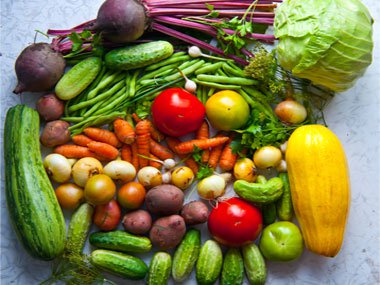Pro v. Con: Veganism

Con: What Proponents of Veganism Don’t Tell You
by Brynn Smith ’19
Veganism is a way of living which seeks to exclude all forms of exploitation of, and cruelty to, animals for food, clothing or any other purpose. While this lifestyle is ethically justified, it is not the healthiest option for eating.
Humans are omnivores. The human body is built to process both meat and greens, without the meat, the body loses essential amino acids that it can’t make itself. The complete protein, which consists of all nine essential amino acids, is only available in meat is the best way to supply the body with the nutrients it needs. Cutting meat out completely, as with a vegan diet, can be detrimental to the body. When consuming a plant-only diet, the loss of essential nutrients like iodine, iron, zinc, and taurine can lead to some serious medical problems. Nutrient deficiency is an issue that can generate all sorts of diseases, including goiter and anemia.
Going vegan could absolutely be the right answer for an individual for ethical reasons, but it is most certainly not the healthiest. The best diets are those with the greatest variety of nutrients and ones that don’t run the risk of losing vitamins important to body function. Veganism doesn’t check either of those boxes. Not only that but according to Mara Kahn, the author of “Vegan Betrayal: Love, Lies, And Hunger in a Plants-Only World,” not one respected study has ever shown a long-term vegan diet to be better than any other type of diet.
For example, the Paleolithic diet, or Paleo diet, is the healthier way to go. This diet is based on the types of food presumed to be eaten by early humans, consisting chiefly of meat, fish, vegetables, and fruit, and the excluding of processed foods. On a Paleo diet, the body receives more minerals, more omega-3 fats, and more protein. Overall, the body als obtains more healthy fats. Several studies show the effects of a Paleo diet on weight loss, improved body composition, and healthier blood pressure and glucose levels.
When deciding to cut out meat from a diet, one must think carefully about the health risks. Vegan diets are ethical and generally healthy, but are they the healthiest diet out there? No. Research shows that a mainly plant-based diet is healthy, but the findings can’t be used to completely justify a vegan diet.
Pro: Being Vegan Is the Healthiest Way to Live
by Noah Corman ’19
Animal products have more downsides than advantages, so swearing off them is the way to go. To address some common misconceptions about veganism, there are many sources of protein that do not come from meat or dairy. Peanut butter (along with all nuts), quinoa, soy, hummus, and non-dairy milk all provide protein. Also, some people believe that a vegan diet does not provide the 20 essential amino acids needed for complete protein. However, this is false. The body already produces eleven of them, and the other nine, called “essential” amino acids, can be acquired from vegan foods. Quinoa and chia seeds, for example, are complete protein sources; they have all of the essential amino acids.
Even though animal products have some vitamins that cannot be obtained from a plant-based diet, supplements close that gap. Although it is generally better to receive vitamins and minerals from actual food rather than supplements, the benefits are negligible. Vegans need a B12 supplement, but this can be perceived as a good thing. Taking the supplement guarantees that the person will not have a deficiency.
Still not convinced? Replacing meat with plant-based, complete sources of protein might save your life. An extensive Harvard University study concluded that eating meat increases the risk of heart disease, stroke, diabetes, and weight gain by over 100 percent.
Dairy is no good either. Milk has been found to have a calcium-leaching effect. The same Harvard study found that women who drink milk with less frequency have less bone fractures, suggesting that milk actually weakens bones. Although it provides the body with calcium, it also draws calcium away from the bones. No such thing occurs when taking in calcium from plant-based sources.
Eggs also fall short of the mark. When an egg company wants to begin an ad campaign, they legally cannot say that eggs are nutritious. The United States Department of Agriculture (USDA) prohibits them from lying since eggs contain excessive amounts of fat and cholesterol. Another Harvard study found that people who eat at least one egg a day have shortened lifespans. People who are already at risk for heart disease or do have heart disease or diabetes, according to the Harvard study, should avoid eggs as they worsen these health conditions.
It is not quite sound reasoning, but it should be said that avoiding animal products, like milk, eggs, butter, meat, and fish, pushes the consumer in the right direction. Assuming the consumer is a strict vegan, as in they never stray from this diet, they will often find themselves making healthier choices. When someone invites them to McDonald’s, for example, they will refuse and opt for a home-cooked meal. Avoiding foods with butter and eggs also moves the consumer away from baked goods, which are undoubtedly unhealthy. Going vegan often results in cooking more meals at home, a much healthier alternative to eating out.